Books for Therapists on Trauma
Trauma can take many forms depending on the type and the person affected, but it has one thing in common for all of those that suffer from it: its harmful and debilitating potential. This section brings different kinds of narratives and approaches to trauma, such as family trauma, sexual trauma, and complex trauma. Some of these texts also present research-based and up-to-date manual and approaches to trauma and PTSD treatment, offering the reader a well-rounded view of this issue.
To keep this site running, we are an Amazon Associate where we earn from qualifying purchases. While these links are amazon affiliate links, the selection of books remains accurate and unbiased.
“8 Keys to Safe Trauma Recovery: Take-Charge Strategies to Empower Your Healing” by Babette Rothschild
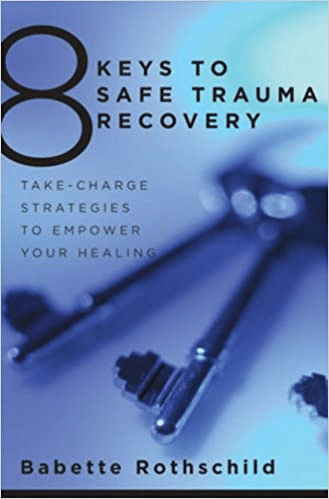
This book offers impacting and effective methods to guide the complicated journey of trauma recovery. With its concise and bright writing, Rothschild presents a number of tools that can and will be of help to everyone who reads the book, from seasoned therapists to readers suffering from the consequences of trauma themselves. Reading 8 Keys to Safe Trauma Recovery is the first step to help someone our yourself to start the long but fulfilling path leading to a satisfying mental health state.
“ACT for PTSD (Treatment Manual)” by Regan Settles, Beth Morris and Kristi Bratkovich
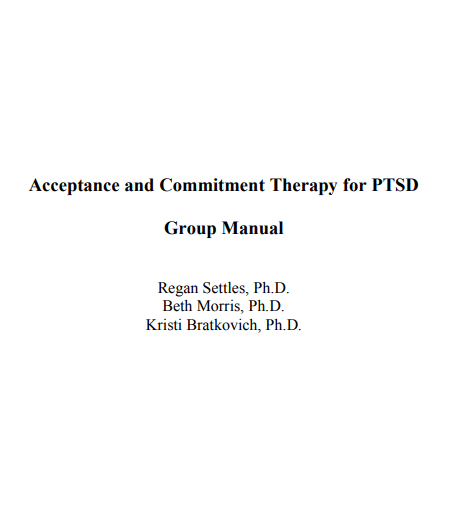
https://www.mirecc.va.gov/visn16/docs/act-for-ptsd-therapist-manual.pdf
This manual is a complete and informative guide on how to implement Acceptance and Commitment Therapy, a highly successful approach, fro PTSD patients. It proposes a well-rounded intervention with straightforward instructions and helpful examples to help therapists better understand and implement this potent technique.
“Healing Developmental Trauma: How Early Trauma Affects Self-Regulation, Self-Image, and the Capacity for Relationship” by Laurence Heller and Aline LaPierre
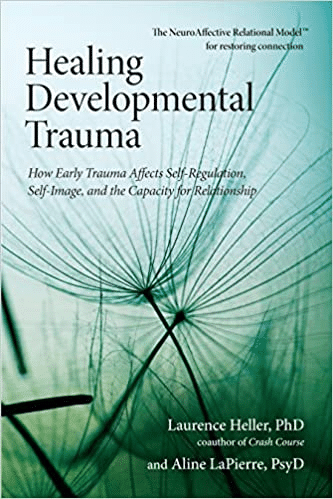
As humans, we all long for connection, but what happens when our capacity of creating relationships is shook? Researchers and clinicians Heller and LaPierre intend to answer this question through this compelling book. The authors created and now teach us their innovative and constructive approach to dealing with developmental and attachment trauma called NeuroAffective Relational Model, which aims to focus on the present of the patient, rather than its past.
“It Didn’t Start With You: How Inherited Family Trauma Shapes Who We Are and How to End the Cycle” by Mark Wolynn
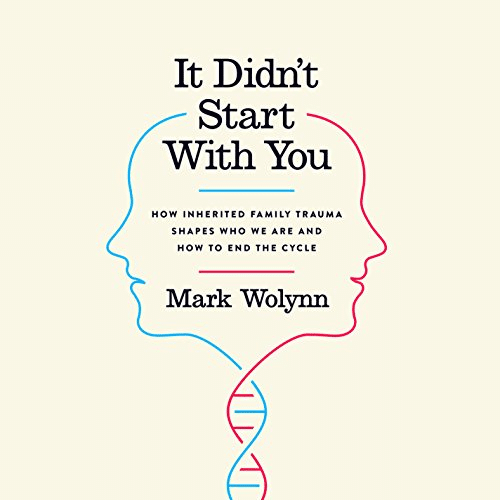
Our family tree may be more important to our mental health then we ever thoutgh possible. In this book, top of the field researcher Mark Wolynn shows how traumatic experiences from our predecessors can pass down to us and affect our lives greatly. With an eye opening narrative, Wolynn invites us to reflect upon the power of our heritage, and gives advice on how to intruduce these principles in the clinic and everyday life.
“One Small Step: Moving Beyond Trauma” by Yvone Dolan
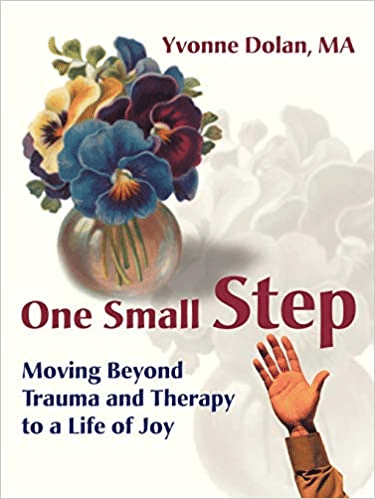
The book One Small Step is at the same time inspiring and educational, as its objective is to assist people that have gone through trauma to live a well deserving fulfiled and happy life. It touches on subjects such as identity, happiness, mental health, support groups and others, in order to shine a light on those affected by trauma at any point in their lives.
“Complex PTSD: From Surviving to Thriving: A Guide and Map for Recovering from Childhood Trauma” by Pete Walker
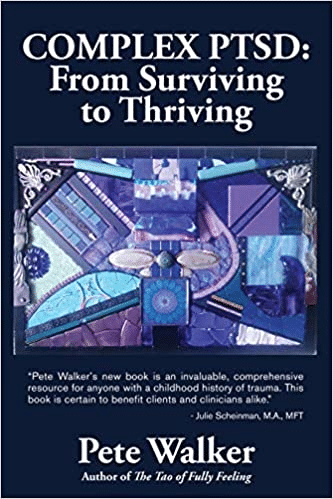
Author Pete Walker was motivated by his own personal and moving experience with childhood trauma to write this book, which aims to help those suffering from complex PTSD. Introducing not only key elements and insight into the implications of PTSD, but also advice and strategies to rise above the traumatic experience, this book presents itself as a sentimental and poignant narrative for everyone that wants to understand trauma or to deal with their own better.
“Standing in the Spaces: Essays on Clinical Process, Trauma, and Dissociation” by Philip M. Bromberg
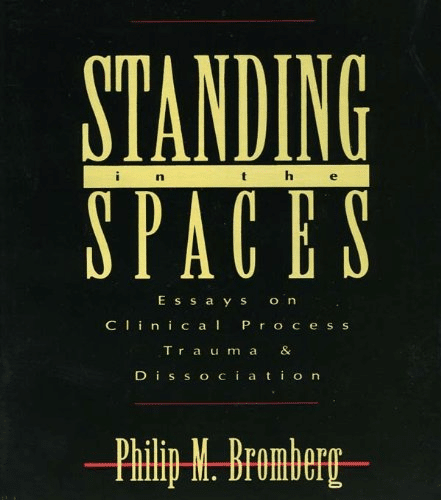
Bromberg is an experienced clinician that, through this collection of essays, gives a new understanding on how the mind of schizoid patients and others with personality disorders works. He proposes that these individuals have gone through traumatic experiences, and use dissociative processes to avoid relieving the trauma. In this groundbreaking book, Bromberg gives a riveting perspective of mental health disorders on the hopes of enhancing the comprehension of psychotherapists on the matter.
“The Body Keeps the Score” by Van der Bessel van der Kolk

The Body Keeps Score is a book that attempts to offer options of healing for those affected by trauma. Offering a discussion on treatments for traumatic stress and showing how some unexpected methods help the healing process, Van der Kolk offers a deep view of the ways that an individual that has been hurt can lead a well-balanced life.
“The Evil Hours: A Biography of Post-traumatic Stress Disorder” by David J. Morris
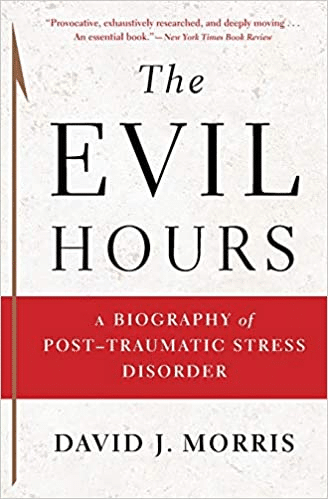
Author David Morris has suffered greatly from trauma and its consequences, making him a understanding and touching author when he shares his story of survival in this book. Pairing true and raw stories with both general and scientific knowledge of PTSD, Morris delivers a significant piece of literature to everyone who’s experienced PTSD -and to everyone that wants to know more about it.
“Trauma and Countertrauma, Resilience and Counterresilience: Insights from Psychoanalysts and Trauma Experts” by Richard B. Gartner
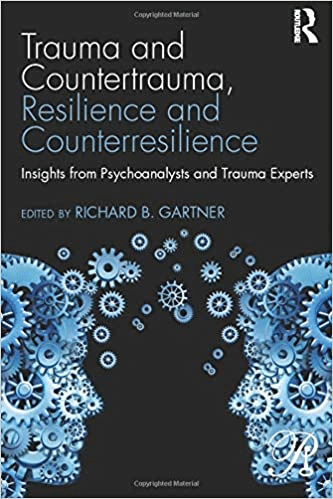
This book, edited by Richard Gartner but with the participation of many proeminant psychotherapists, elucidates the concepts of countertrauma and counterresielience. Those concepts are related to a therapist’s exposure to trauma patients, and how it can awake both positive and negative feelings on the clinician. With a clear and rich language, psychotherapists with all kinds of background discuss essential themes to every professional that has ever worker with PTSD patients.
“Trauma and Recovery: The Aftermath of Violence — From Domestic Abuse to Political Terror” by Judith Herman
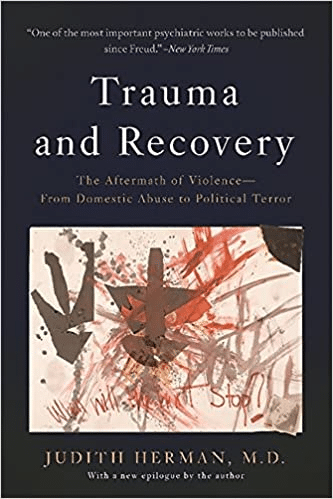
Psychiatrist Judith Herman is a renowned researcher in the trauma field, and uses her experience to discuss all kinds of trauma in this book. With an innovative and illuminating take on the subject of trauma, the book explores how the social and political context influences greatly on individual trauma, and how the contrary is also true. In an astounding piece of literature, Herman reveals how we can view trauma in a totally new way.
“Trauma and the Avoidant Client” by Robert T. Muller
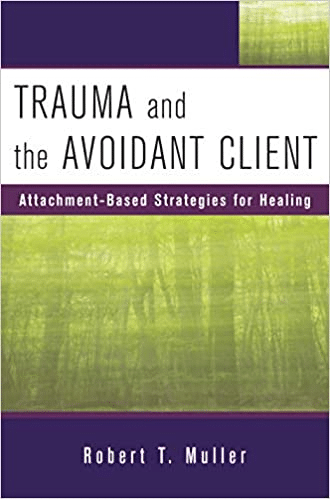
There frequently are patients that during the psychotherapeutic treatment avoid or deny their own traumatic experiences; when this happens, it’s usually frustrating both for the therapist and the patient. Author Robert Muller, in this book, looks closely into this difficult matter and offers solutions in the form of advice, techniques and strategies that aim to assist the clinician while also helping the patient deal with his or her painful experiences.
“Treatment of Complex Trauma: A Sequenced, Relationship-Based Approach” by Christine A. Curtois and Julian D. Ford
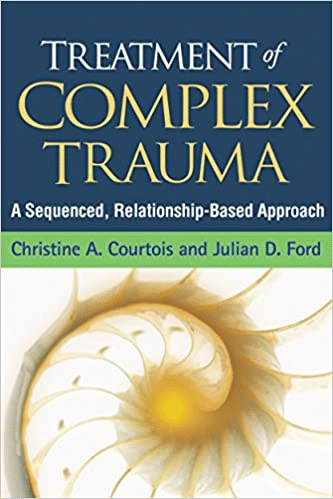
Treatment of Complex Trauma is a helpful tool for any therapist working with trauma patients. This book excels in presenting the profound ways in which the therapeutic alliance influences the success of the treatment, and it presents a robust and effective intervention that follows three phases of PTSD recovery, elaborated through extensive study by the part of authors Courtois and Ford.
“Unchained Memories: True Stories of Traumatic Memories Lost and Found” by Lenore Terr
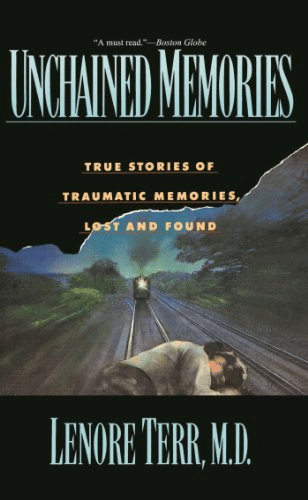
No matter how much research there is on it, memory is still considered to be a mysterious and unpredictable mechanism by many. Unchained Memories, however, helps us understand more about this fascinating subject; through seven real and shocking stories, the book enters the discussion of reclaimed memories, and why in most cases there is an aspect of truth in them. Psychiatrist Lenore Terr succeeds in presenting an all at once entertaining, educational and thought-provoking book.
“Waking the Tiger” by Peter A. Levine
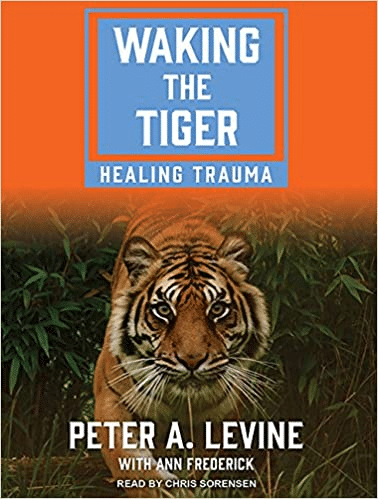
The book Walking the Tiger poses the question of why wild animals are rarely traumatized, even when regularly exposed to threat. This inquiry serves as a starting point to a deep conversation concerning human trauma, its nature and its symptoms. By drawing a parallel between animals in the wild and human beings, author Peter Levine intends to aid people that either have been through trauma, or just want to learn more about it.
“Prolonged Exposure Therapy for PTSD” by Edna B. Foa, Elizabeth A. Hembree, Barbara Olasov Rothbaum and Sheila A. M. Rauch
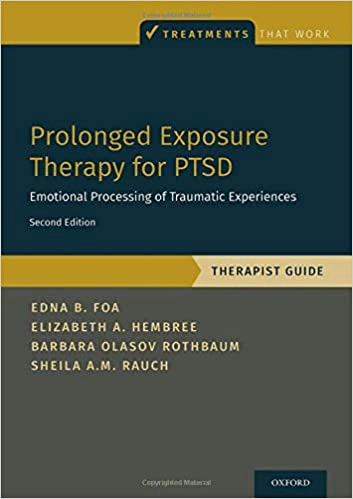
This book is a powerful and valuable guide that provides the best descriptions and instruments to the Prolonged Exposure Therapy applied to the context of PTSD. Here, top of the field professionals come together to help therapists on the implementation of this highly effective approach that draws from clinic and reasearch alike, also allowing a essential individualization to fit each different patient.
“Trauma und Persönlichkeitsstörungen: Psychodynamisch-integrative Therapie” von Wolfgang Wöller
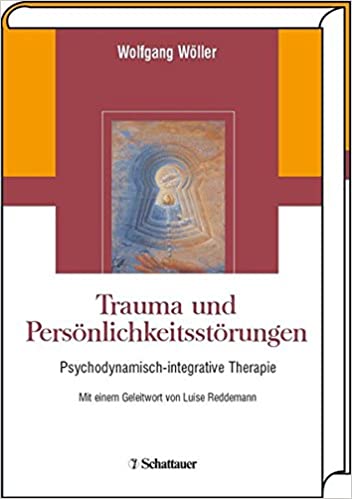
Are personality disorders the result of traumatic experiences? This book explains possible connections between a person’s personality disorder and their traumatic experiences in childhood and adolescence. The focus is on chronic attachment and relationship trauma. A psychodynamic-integrative treatment strategy for patients with trauma and personality disorders has been developed based on the findings of psychoanalysis, trauma research, attachment theory and neurobiology. Sequences from therapeutic conversations help to understand intervention options in a practical way using a concrete case study. The authors also present other newer therapeutic approaches and compare them point by point with their own approach; thus the reader gets a good orientation in the current therapy procedures in the field of personality disorders and trauma-associated disorders.